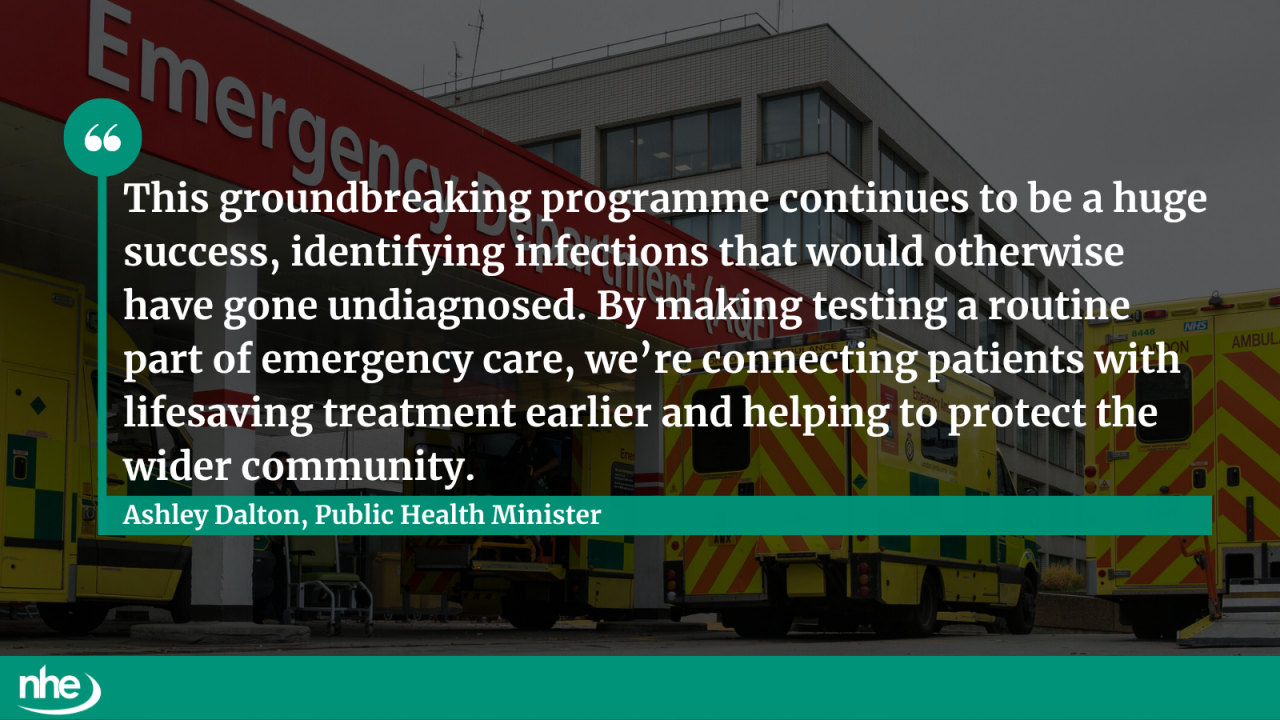A pioneering opt-out testing programme for HIV, hepatitis B, and hepatitis C in NHS emergency departments has identified thousands of undiagnosed cases, offering many patients life-saving treatment for the first time, according to a new evaluation report published by the UK Health Security Agency.
The programme, commissioned by NHS England, ran across 34 emergency departments in areas with the highest HIV prevalence between April 2022 and January 2025, and has delivered over 7 million bloodborne virus tests.
Key Findings from the Evaluation
- 3,667 new hepatitis B diagnoses
- 831 new hepatitis C diagnoses
- 719 new HIV diagnoses
- 291 people re-engaged with HIV care
- 70% test uptake rate among eligible patients
- 60% had no prior BBV testing record
The programme accounted for 50% of all BBV testing in these areas during the period and successfully reached older patients and ethnic minority communities, with uptake rates of 72% among over-80s, 68.8% among Asian Other, and 73.1% among Black Caribbean attendees.
The data shows that half of those newly diagnosed with HIV had late-stage disease, significantly higher than in other healthcare settings. This highlights the role of emergency departments as a critical safety net for identifying patients who may not be reached through traditional healthcare pathways.
The programme also revealed that 80% of newly diagnosed individuals had attended an ED in the year prior to the programme’s launch, reinforcing the importance of routine BBV testing in emergency care.
Ashley Dalton, Public Health Minister, commented:
“This groundbreaking programme continues to be a huge success, identifying infections that would otherwise have gone undiagnosed. By making testing a routine part of emergency care, we’re connecting patients with lifesaving treatment earlier and helping to protect the wider community.
“It has also found almost 300 people who were previously diagnosed with HIV but were not receiving any type of care when they took part in this testing programme. I am delighted that because of this work, they are now receiving the treatment they need.
“It also helps us in our goal to end new HIV transmissions by 2030, which depends on better access to testing and treatment. Every new or untreated diagnosis we identify represents someone who can now get the care they need.”

The success of the opt-out approach demonstrates the potential of integrated testing models to improve public health outcomes, reduce transmission, and ensure timely access to treatment and support.
The UKHSA report underscores the need to expand and sustain such initiatives to reach underserved populations and tackle the ongoing challenge of undiagnosed bloodborne viruses.
Image credit: iStock



















